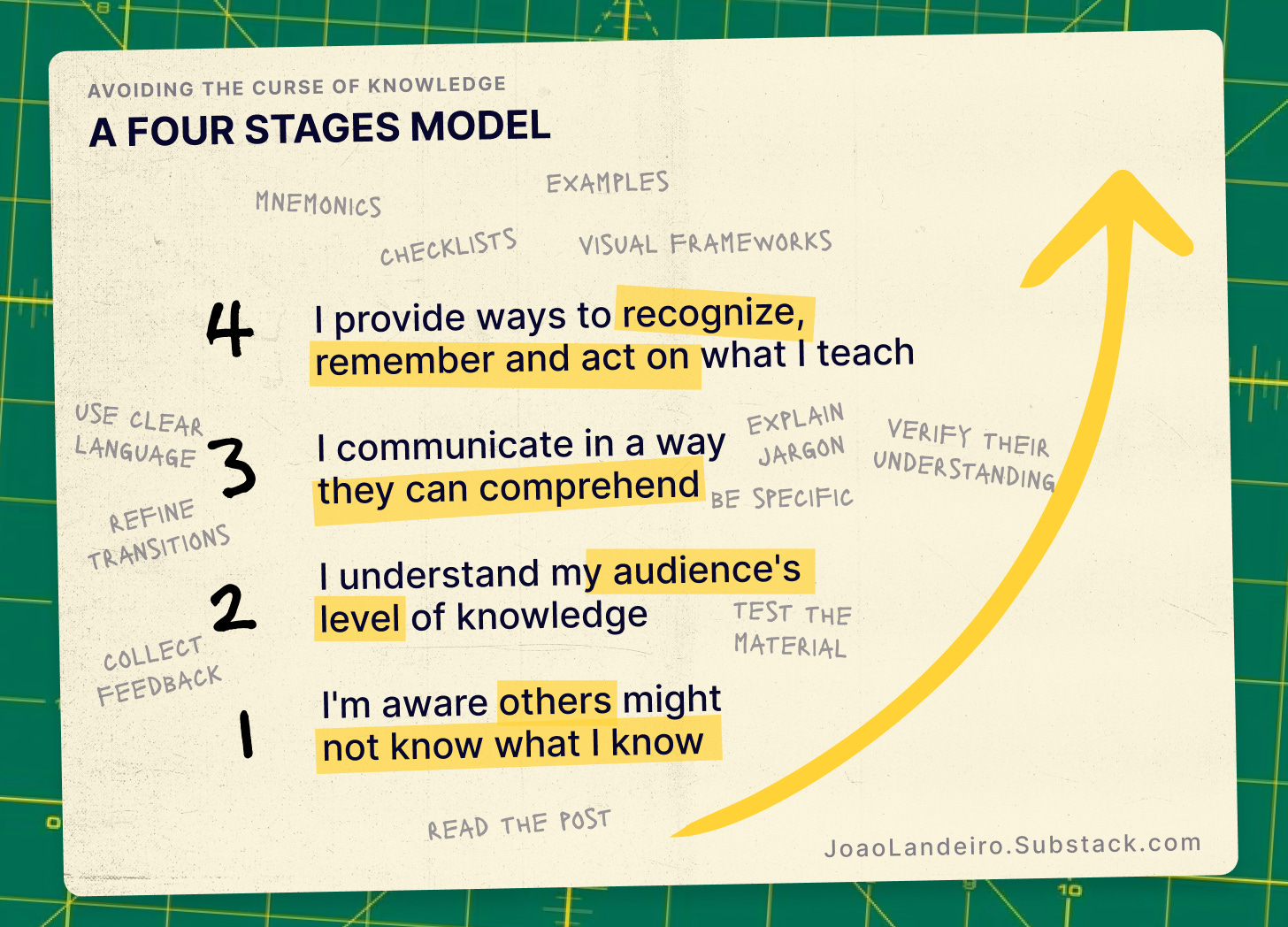Avoiding the Curse of Knowledge
Being understood is harder when you're an Expert. I have 10 tips to address this. And also a Nobel-Laureate-Grade strategy.
We all remember that teacher that knew everything and could explain nothing.
How come this is such an universal experience?
Why expertise is blinding
Accumulating expertise is akin to climbing a mountain of knowledge. As you reach the summit you are rewarded with a stunning panorama. You try and describe it to others that have not climbed with you. But they cannot see it.
Of course, they are at a lower "knowledge-altitude".
Why call it "the Curse of Knowledge”?
A bit of an eerie name isn't it?
In 1989 a study is published with a mind-bending, but intuitively accurate proposition about expertise:1
Having better information negatively affects how well you can predict the actions of those with less information.
In other words, experts have very optimistic expectations of how non-experts think and make decisions.
Can you see how this impacts the transfer of knowledge and cooperation between experts and beginners?
Like, between you and your clients?
To manage this, I use a 4 stages model. It helps me connect to my clients and not become too clueless about their real level of understanding:
Expanding the 4 stages model into 10 practical steps
Be aware there's a risk that you're communicating poorly due to your inaccurate notion of your audience's familiarity with your topic;
Do not assume what others know or even that they see the relevance of what you are saying;
Research your audience's level of expertise. Some might have the basics (worth verifying, to weed out misconceptions) while others be clueless;
Test your material with others that can critically evaluate it. Even better if they are beginners themselves;
Use simple words that are easy to understand. Complex topics need plain language;
Do not communicate in an academic or flowery way in a bid to impress other experts. The audience for your services is almost never your peers;
Smooth out transitions between themes to maintain interest and participation of your clients. Help them follow along;
Translate vague objectives into clear decisions. If your objective is to “incite delight in our customers”, you might think it means “stellar customer support” but a colleague would perhaps frame that goal as “top-of-the-line product quality". Make no assumptions;
Introduce and explain abbreviations, acronyms and technical jargon;2
Provide images, charts or other visual aids. When presented with a new idea, even visual thinkers can struggle to create a useful mental picture on the spot. 3
Next time you are imparting your expertise, take a second to reflect how you can increase your chances of being understood.
Beating the Curse of Knowledge can be difficult, but the rewards immense.
Bonus, the Feynman Technique
Strictly speaking, the Feynman Technique is more about learning than teaching.
But it uses both sides of the table to incite true understanding of a complex field.
Farnam Street has a great post on it:
https://fs.blog/feynman-technique/
I personally like to periodically re-introduce them to let give people learn them at different stages of the session.
You have the advantage of having spent longer thinking about your topic. Your visual model is probably better than what they can come up with on the spot.



Wanted to say only just discovered this newsletter and I really like it so far. Just adding to my recommended list.
I wrote about a similar topic here: https://richardmillington.substack.com/p/poor-consultants-are-cursed-by-book
Drop me a line if you want to chat sometime. I'd be curious to learn more about what you're up to )(richard@feverbee.com)